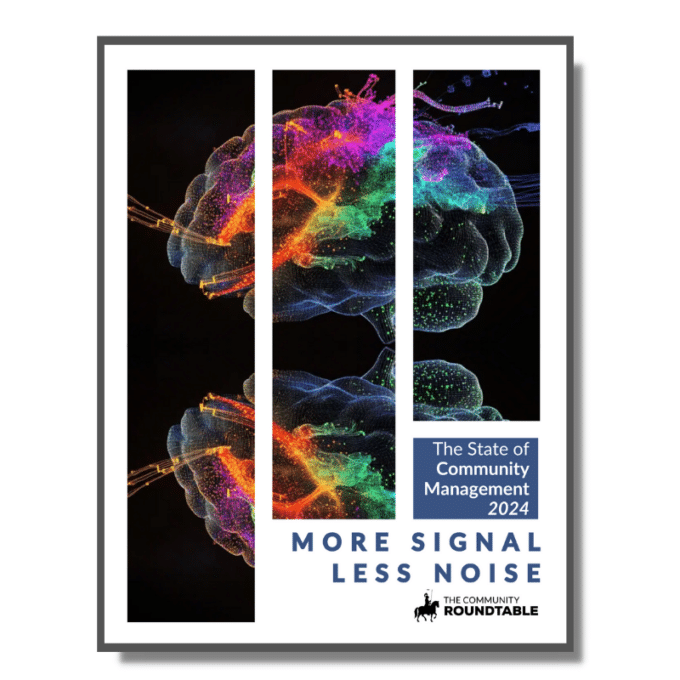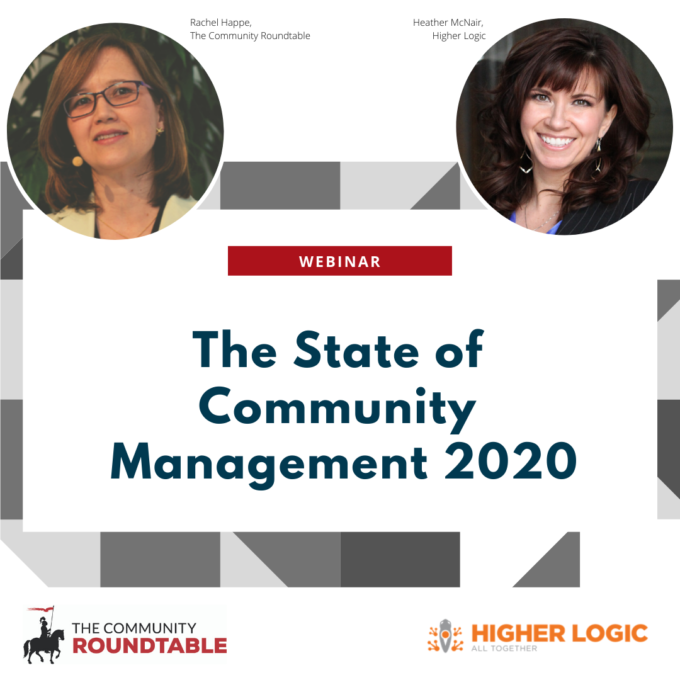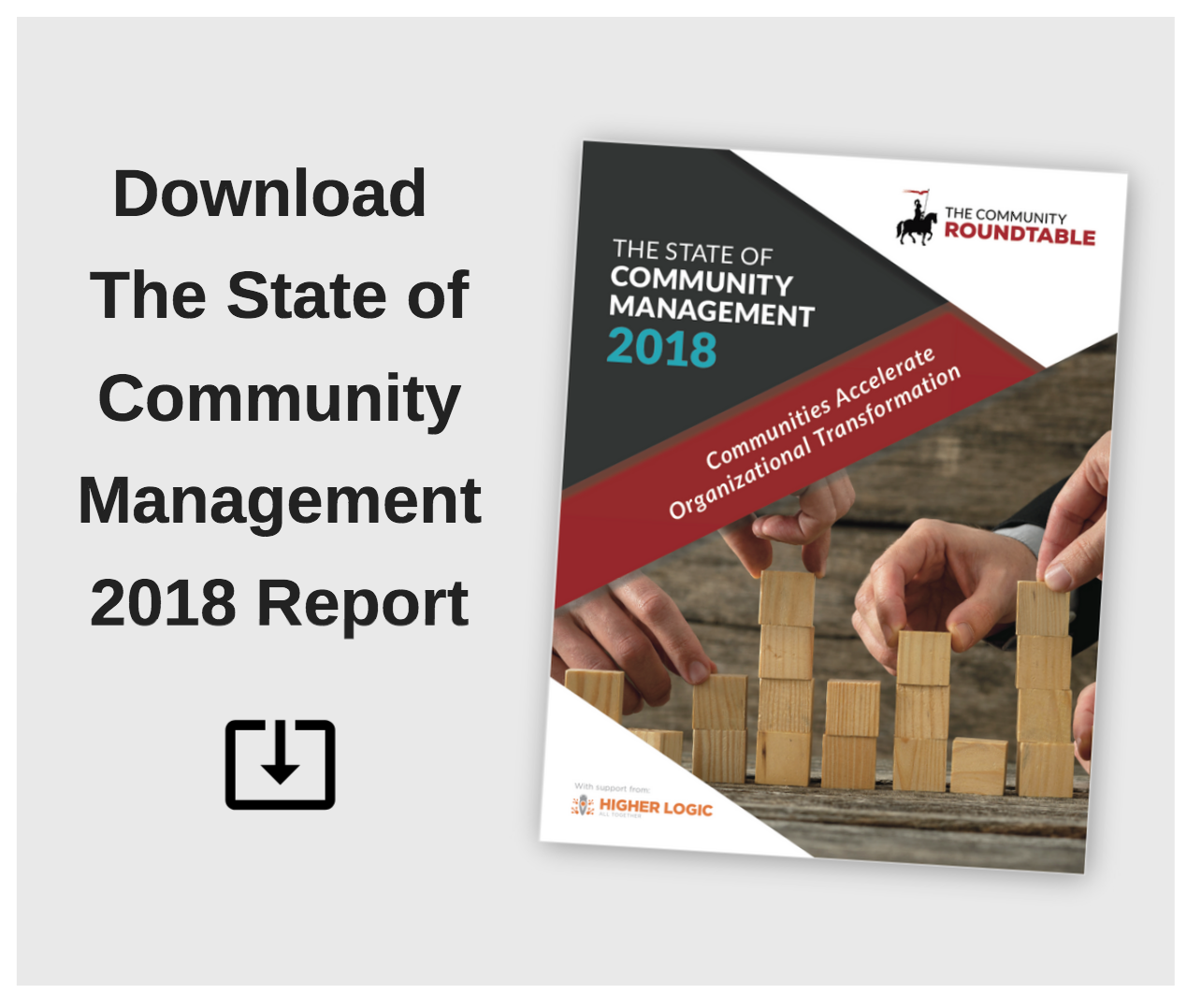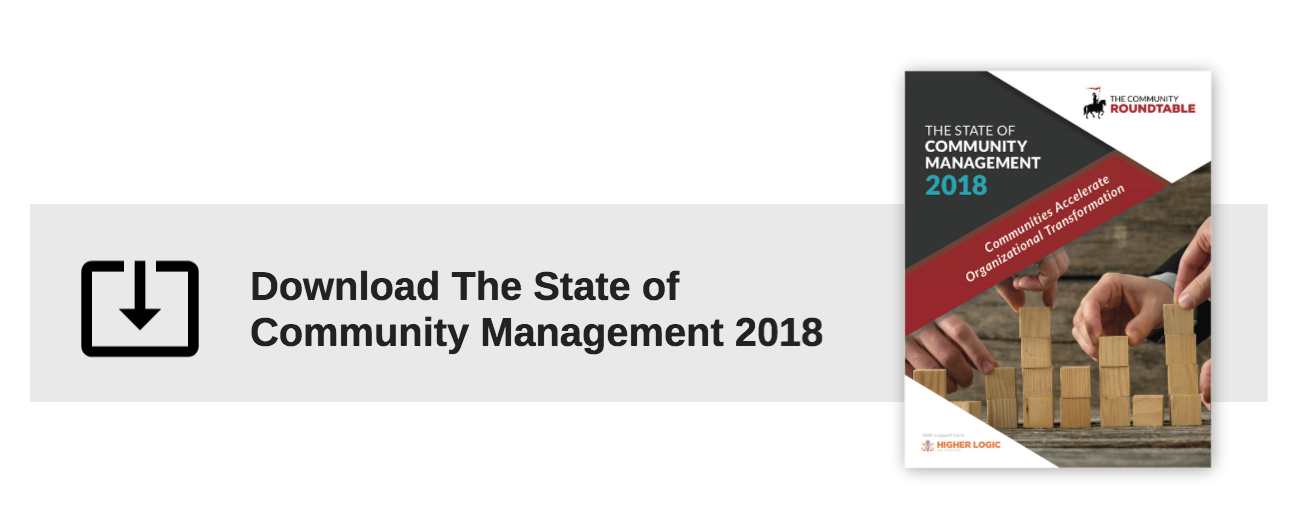Welcome to the 15th edition of the State of Community Management research, brought to you by The Community Roundtable! We are thrilled to share this year’s research report – the State of Community Management 2024 with you.
When we first published the State of Community Management research in 2010 online communities were broadly used by internet pioneers, but community management was still an emerging discipline within organizations. This research and the related Community Maturity Model™ served as a framework for those nascent community professionals.
Fifteen years later, The Community Roundtable and the State of Community Management endure, supporting community practitioners with the insights, case studies, and recommendations they need to be successful in their community initiatives. We share trends from all respondents and a “best-in-class” cohort”, in order to help all programs level up.
There is considerable noise in the market and on the internet in general. This report aims to provide a strong signal for community practitioners, equipping them with the data and insights they need to secure support and resources for continued success.
Take your time with the report, making note of where your program differs from the survey average and/or the best-in-class, and use this information to inform your 2025 planning. Consider joining us in
The Network, where your community peers come together to support one another on their community journeys.
Download your copy for the State of Community Management 2024 here.






